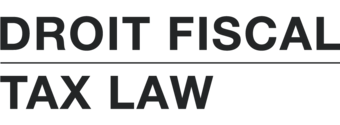
Photo by Karolina Grabowska
In this case, the taxpayer withdrew money from his RRSP in 2004. In order to offset the tax he would have had to pay, he made a charitable donation of $65,000 to the Canadian Literacy Enhancement Society (“CLES”). In 2008, the CRA reassessed the taxpayer’s 2004 taxation year to disallow the federal and provincial tax credits he claimed in relation to that payment. In 2009, the CRA further reassessed him, this time to impose gross negligence penalties (outside of the normal reassessment period). The reassessments against this taxpayer were part of the many reassessments issued by the CRA in relation to donations to CLES after the CRA learned of a scheme whereby donors expected to receive approximately 70% of the amounts donated as “kickbacks”.
The CRA’s position was that the taxpayer was not entitled to the credit because there was no “donative intent”. The taxpayer testified that in making the $65,000 payment to CLES he had donative intent and was not aware of the kickback scheme.
The Court sided with the CRA. Without saying that he did not believe the taxpayer (which would have had implications on his determination regarding the issue of gross negligence), the judge stated that the latter “failed to prove on a balance of probabilities that he did not expect to receive a kickback and that he intended to impoverish himself to the full extent of $65,000”. With regard to the issue of the gross negligence penalties, the Court let the taxpayer off the hook.
In reaching his conclusion, the judge relied on the principle that assumptions of fact made by the CRA in support of its reassessments are presumed to be true, unless demolished by the taxpayer. The judge did not limit himself to the taxpayer’s testimony, but also looked at other objective manifestations of purpose. In other words, the judge did not take the taxpayer at his word, but considered all the circumstances to see if they corroborated or reinforced the taxpayer’s assertions. The evidence revealed that the taxpayer made only small charitable donations every year, except for 2004. Further, the taxpayer had no real connections with CLES.
The taxpayer appealed to the Federal Court of Appeal, but his appeal was dismissed.
A taxpayer should be prepared to support his or her testimony with evidence. The taxpayer’s version of events has to be credible. Affirming something or denying something with “conviction” is not enough. Further, the fact that many other taxpayers have taken advantage of the same tax scheme does not mean it is legitimate. As in this case, the CRA can reassess many years down the road to deny any benefits claimed, and add penalties and interest on top of that.
